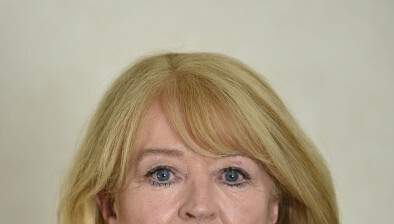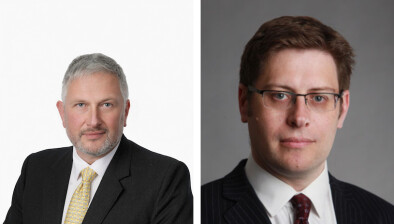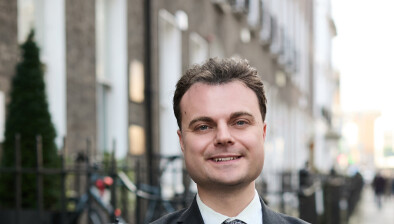High Court: Judge criticises ‘inappropriate’ practice of solicitors referring clients to medical specialists in personal injury cases

The High Court has dismissed two claims for personal injuries involving a minor accident on the basis that the plaintiffs gave “false and inconsistent” evidence in the case. A central feature of the case related to one of the plaintiffs being referred to medical consultants by her solicitor, which the court held was “inappropriate”.

About this case:
- Citation:[2022] IEHC 705
- Judgment:
- Court:High Court
- Judge:Mr Justice Michael Twomey
Delivering judgment in the case, Mr Justice Michael Twomey outlined each of the inconsistencies in the plaintiffs’ evidence, noting that much of the claim was undercut by independent Garda witnesses or by their own testimony. Further, the court outlined that the solicitor’s referral to a medical specialist did not have a medical basis and therefore was improper.
Background
The plaintiffs, Ms Cahill and Ms O’Riordan, were sisters who were travelling in their car in Clonmel. The defendant was driving behind them. The two cars were in a line of traffic when the defendant began to move forward while checking traffic coming from his right. The defendant’s car was approximately 1.5 feet behind the plaintiffs’ car and the defendant ultimately bumped into the back of the plaintiffs’ car.
The parties got out of their cars to inspect the damage and it appeared that there was none. The parties did not exchange insurance details and began moving again. However, the plaintiffs later went to the Gardaí, alleging that the defendant had smelled of alcohol and that he had fled the scene of the accident. A garda inspected the plaintiffs’ vehicle and found no evidence of any damage.
The plaintiffs later claimed that there was a wide gash on the bumper of the car and that this had been caused by the accident. Ms O’Riordan made a statement to Gardaí in this respect.
The defendant was interviewed by gardaí regarding the allegations made by the plaintiffs. He accepted that the accident happened but denied fleeing the scene. He also said that he did not drink alcohol.
In a GP’s report, Ms Cahill claimed that there was a significant impact from the accident and that her bumper was damaged. Ms Cahill also described to a consultant that impact was like an “explosion” and that her airbags deployed. Further, in replies to particulars, Ms Cahill claimed that she did not have any previous relevant injuries in the last five years, which transpired to be incorrect in respect of both physical and mental health issues.
One of the main aspects of the case related to Ms Cahill being referred for medical consultations by her solicitor rather than by her GP. Ms Cahill was referred to an orthopaedic surgeon and a consultant psychiatrist by her solicitor.
The plaintiffs were unsuccessful in the Circuit Court where both claims were dismissed. As such, they each appealed to the High Court in a de novo hearing of the matter.
High Court
Mr Justice Twomey began by outlining the decision in Dardis v. Poplovka (No. 1) [2017] IEHC 149, in which it was stated that it was inappropriate for solicitors to refer their clients for medical examination. It was said that, since a solicitor is not a doctor, there is no medical basis for the referral and instead, the referral is made for legal reasons. The court noted that, notwithstanding the statement of the law in Dardis, the situation persisted in litigation (see Harty v. Nestor [2022] IEHC 108).
It was pointed out in Harty v Nestor that a GP should ordinarily refer a plaintiff to a medical consultant because, when solicitors do so, the consultant does not have access to the medical history of the plaintiff. Mr Justice Twomey held that a solicitor referral impacted on the credibility of the plaintiff because the existence of a solicitor referral was prima facie evidence that no medical basis existed for the referral.
It was also noted that medical reports based on solicitor referrals may not be admissible in personal injuries hearings. Order 39 Rule 58(1) provided that expert evidence is restricted to that which is reasonably required for the determination of the proceedings. While the court did not decide the issue, Mr Justice Twomey outlined that it was at least arguable that expert evidence obtained on foot of a solicitor referral was not reasonably required in proceedings.
The court also noted that solicitor referrals placed a strain on medical resources. Eight medical appointments were made in this case and the court held that it was up to practitioners to change the culture in the use of expert witnesses (Duffy v. McGee [2022] IECA 254). In this regard, the court also held that it was inappropriate for the plaintiffs to engage engineering experts for what was a “tip” accident between the vehicles.
Mr Justice Twomey also held that there were “false and inconsistent” claims from the plaintiffs regarding the accident. The court preferred the evidence of the defendant and the garda (an independent witness) who outlined that there was no damage to the car arising from the accident. On the plaintiffs’ own evidence, the defendant did not flee the scene which was a false claim to the Gardaí.
It was also accepted by Ms Cahill in evidence that the airbags did not deploy. She blamed her solicitor for not disclosing her previous injury history but she had to accept responsibility for this in the proceedings, the court held.
Overall, the plaintiffs’ credibility was significantly undermined by the evidence in the case, the court held. As such, the court held that the plaintiffs failed to discharge the onus of proof that the accident caused the alleged injuries.
Conclusion
The court dismissed both appeals.
Cahill v. Forristal; O’Riordan v. Forristal [2022] IEHC 705








